Best VPNs for Streaming
The best VPN for streaming is a VPN that unblocks and stays undetected by all major streaming services, is always reliable & fast, and lets you stream on multiple devices at once.
We stream tested 200+ VPNs, and 180+ VPNs failed our test or were blocked by streaming sites. If streaming is your priority, choose one of the best VPNs for streaming in 2021, tested & verified.

Top 4 VPN for Streaming
- Works with Netflix, HBO Max, Hulu, Disney Plus, YouTube TV, ESPN & 22 other streaming services.
- 99%+ Reliable High-Speed VPN for Streaming
- Unlock Content Access from 70+ Countries
- Bypass VPN Detection / Smart IP Address
- Stream on up to 30 devices simultaneously
- 30-day Money-back Guarantee
- Works with Netflix, Hulu, Disney+, HBO Max, BBC iPlayer, Amazon Prime Video, Showtime, and YouTube TV
- 99%+ Reliable High-Speed VPN for Streaming
- Unlock content from 94 countries
- Stream on up to 5 devices simultaneously
- 30-day Money-back Guarantee
- 98%+ Reliable High-Speed VPN for Streaming
- Works with Netflix, Hulu, Disney+, HBO Max, Amazon Prime Video, Vudu, and 19 other streaming services.
- Unlock content from 74+ countries
- Stream on Unlimited devices simultaneously
- 7-Day Free Trial & 30-Day Money Back Guarantee
- Works with Netflix, HBO Max, Hulu, Disney Plus, YouTube TV, ESPN & 29 other streaming services.
- 99%+ Reliable High-Speed VPN for Streaming
- Unlock Content Access from 90+ countries
- Stream on up to 7 devices at once
- 45 Day Money Back Guarantee
FAQs About the Best VPNs for Streaming
Do I need a VPN for streaming TV?
Streaming TV services are accessible through regular Internet connections, but using a VPN for streaming offers certain benefits like:
- – Increased privacy: VPNs will mask your viewing activity, preventing others from knowing what sites you are connecting to and what programs you are watching.
- – Faster streaming: VPNs can be used to go around ISPs throttling down your Internet connection, and to maintain suitable video streaming speeds.
- – Accessing locked content: You can use VPNs to mask your IP address and access streaming content available only in other countries.
The above benefits let you get the most out of streaming sites. Since you are likely using your VPNs for other purposes, this makes them an even better investment.
Can a VPN allow me to bypass geo-blockers?
Yes, they can. VPNs work by hiding your IP address and connecting you to a server that has a different one. By selecting a server located in the same country as the site you want to access, you can go around the restrictions. Many streaming VPNs even automatically determine the IP addresses of streaming sites, freeing you from the guesswork.
What is the best VPN for streaming?
We reviewed several providers and determined that the best ones were those found above in our reviews. Some of them have the fastest speeds we have tested, others have a large selection of servers to get around geoblocking, and some have customization options to help you fine-tune your VPN connection to a specific streaming service.
To have a better idea of which one to choose, read our full review for each provider, and find out what they offer. Think about how you want to use the VPN for activities besides streaming, like torrenting, and you’ll make a great choice.
Should I get a VPN for streaming?
Most VPN services will be able to handle streaming content. Getting one that is specifically suited for the job has certain advantages:
- – Optimized features: Since these VPNs are intended purely for content streaming, they are configured to deliver the best viewing experience.
- – Automated region searching: Streaming VPNs can quickly determine the IP addresses for different service regions, useful if you want to watch content from other countries.
- – VPN blocker protection: The more popular providers have IP scrambling features that let you get past the VPN blockers that some companies (like Netflix) implement.
- – Quick access: Many streaming VPN providers already come with pre-configured connection settings for popular sites like Netflix and Hulu.
- – Multi-device support: Depending on the provider, you can run up to 10 devices in a single VPN connection, letting you watch whatever you want.
If you decide to go with a dedicated streaming VPN, look for these features to be sure that you are getting good value for your money.
How do I access a region-restricted site?
There are several ways you can access a region-restricted site, including:
- – Using a VPN
- – Using proxy servers
- – Connecting to DNS tunneling services
- – Running special extensions on your browser
- – GPS location spoofing (for mobile devices)
Out of this list, VPNs are one of the more reliable method since they are easy to set up and use, and they offer better protection. All you have to do is:
1: Launch your connection. You can do this either through your computer’s network settings or through the provided VPN app.
2: Connect to a server located in the same country as your target website. Certain video-streaming services will automatically show you the specific servers to connect to.
3: Visit your target site. In most cases, the unblocking of content is automatic.
4: You can connect to a different blocked site just by switching to the appropriate server.
5: Turn on any anti-VPN blocker feature that your service provider might have to ensure continuous connection.
Note that this is only a basic setup guide. Certain VPN services might have additional instructions on how to unblock specific sites.
What content can I stream using a VPN?
Videos are the most common content streamed through VPNs, particularly those coming from popular sites like Netflix, Hulu, or the BBC’s iPlayer. VPNs can also be used to go around the country restrictions on YouTube videos, or get online TV programming feeds from different countries.
Gamers are another group that are taking advantage of VPNs. They mainly use VPNs to go around the bandwidth and speed limitations set by ISPs that can slow down online gameplay. People can also use VPNs to increase their connection speeds and to download game updates and new content faster.
Outside of streaming audiovisual content, you can use VPNs to access publications that are not yet available in your country or those that are blocked by the host country. This makes VPNs an invaluable tool for researchers.
Does using a VPN affect my streaming speed?
Yes, it will affect your streaming speed a very small amount, which we document in our reviews. Several factors determine how much a VPN impacts streaming:
- – Distance to server: The farther you are from the VPN server you are connected to, the longer it takes for data to travel to you.
- – Server limitations: Not all VPN servers are equal. Some might have a lower bandwidth limitation which will slow your connection if they get overcrowded by users.
- – Type of encryption: A more complex encryption algorithm can result in slower streaming speeds since data processing is longer.
- – ISP speed: If your Internet service provider already has a slow connection, this will lessen the speed boost you can gain from using a VPN. Oddly, sometimes a VPN can increase your speed if your ISP is throttling your connection speed while streaming.
Use these factors as guides in reviewing your VPN provider’s features and determining if they will be able to handle the kind of streaming you want to do.
How much does a VPN for streaming cost?
Many of the popular VPNs cost only $3 to $6 per month. Note that dedicated streaming VPNs cost more, but they are still within the affordable range. You will also need to shell out extra for specific features like Netflix unblocking.
Is it safe to use a VPN on my streaming device?
Yes. In fact, using VPNs for streaming is legal as long as you don’t use them for prohibited activities like downloading and distributing copyrighted content. VPNs also provide extra protection against viruses and hackers, but you should remember that the level of safety a VPN has is tied to its quality. Be sure to purchase only the ones that offer high-quality services.
